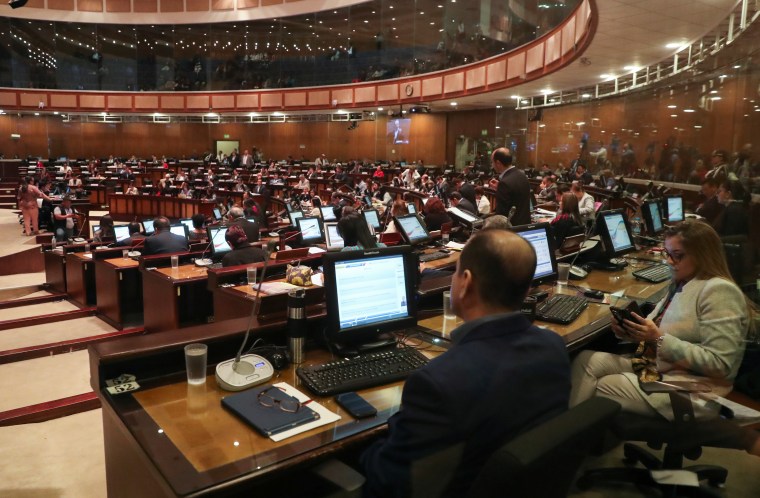Miami, May 11, 2021 – Ecuadorian President Lenín Moreno should require the country’s legislature to amend a recently passed bill to ensure that it does not threaten press freedom, or should veto that legislation, the Committee to Protect Journalists said today.
On May 6, the National Assembly passed the “Law to Prevent and Combat Digital Sexual Violence and Strengthen the Fight Against Computer Crimes,” a piece of legislation that includes several articles that threaten the ability of journalists to cover the news without fear of criminal penalty, according to the text of the legislation, which CPJ reviewed, a tweet from the National Assembly announcing the bill’s passage, and a statement by the Quito-based press freedom group Fundamedios.
Yesterday, the National Assembly ratified the bill’s passage; the law will be enacted if signed by President Moreno; the bill passed overwhelmingly in the assembly, and CPJ was unable to find any public comments from Moreno expressing an opinion on the legislation.
“The digital violence law recently passed by the Ecuadorian legislature poses a severe threat to journalists in the country, and President Moreno should refuse to ratify the law until it can be revised to ensure press freedom,” said CPJ Central and South America Program Coordinator Natalie Southwick, in New York. “Ecuador’s criminal code already has several articles that have been used to impose criminal penalties on journalists for doing their jobs; now is the time to repeal such laws, not to impose new ones.”
The bill expands Article 179 of the country’s criminal code, relating to the “disclosure of secrecy,” by introducing criminal penalties for revealing or disseminating “digital content, messages, emails, images, audios or videos or any other personal content … of a person without their consent, by virtue of the fact that they wanted to maintain this information in secret.” Convictions under that article carry up to three years in prison, according to the legislation.
The bill also expands Article 396, which relates to criminal defamation, by adding that the crime can be committed via any “communication or information technologies,” with convictions carrying prison terms of up to 30 days.
The bill was initially presented as a means to protect victims of sexual violence from online harassment, but the final text passed by the legislature “implies serious violations of freedoms and rights in the digital space,” the Fundamedios statement said.
“We see that this deepens the problems that the penal code already had, and the bill uses ambiguous terminology that can be arbitrarily interpreted,” Fundamedios director César Ricaurte told CPJ via messaging app. “We can imagine the disastrous impact that toughening these problematic rules of the penal code can have on the work of the press, [and] on investigative journalism.”
CPJ called the Ecuadorian National Assembly for comment, but no one answered.
In November 2020, an Ecuadorian court convicted journalist Juán Sarmiento on defamation charges under Article 396 of the criminal code, and sentenced him to 10 days in prison, as CPJ documented at the time.
In 2018, CPJ published the The U-turn, a report documenting how Moreno’s administration had diverged from that of his predecessor, Rafael Correa, who had been severely critical of the Ecuadorian press and passed one of the most restrictive media laws in the region.
“This goes against the trend. Just when we had assumed that the country was entering a path of greater respect for freedoms, including freedom of expression,” Ricaurte told CPJ.
[Editors’ note: This article has been changed in its sixth paragraph to correct the duration of jail terms for convictions under Article 396.]
